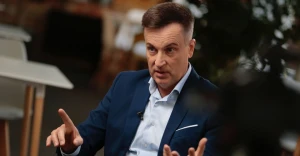
Takeaways from Lugano
Victory reports are up in the air for over a week after Ukrainian Recovery Conference took place in Lugano
High-ranking representatives of 42 countries and 5 international organizations and financial institutions discussed the prospects for both immediate and post-war recovery of Ukraine, and in particular the Recovery and Development Plan presented by the Ukrainian authorities (a.k.a. Ukraine Recovery Plan within the country).
The authorities announced their intention to attract 750 billion dollars for 10 years, including "300-500 billion" from the seized assets of the Russian Federation and its oligarchs. After the conference, Prime Minister Denys Shmyhal reported on "agreements" worth 1.9 billion dollars and thanked the governments of Switzerland, Sweden, Great Britain, the World Bank, EBRD, EIB, private Ukrainian and international business "for this solidarity".
The European Parliament, followed by the European Council, as previously announced, supported the European Commission's proposal to provide Ukraine with EU macro-financial assistance to meet urgent budgetary needs in the amount of EUR 1 billion. Prime Minister Denys Shmyhal thanked the World Bank for the $1.7 billion tranche of grant support. However, this is where the dynamics ends. Moreover, the specified "arrangements" are still just declarative. In order to receive further funds, one will have to work hard on building trust.
According to Bloomberg, the European Commission’s budget unit is now blocking the proposed loan of 1.5 billion euros to Ukraine because of concerns over its financial reliability. Finance Minister Serhiy Marchenko said there is no consensus among the EU countries regarding the provision of a 9 billion euro aid package to Kyiv.
But just the direction of work to build trust was clearly outlined by the results of the conference in Lugano. This is the main conclusion and outcome – but the authorities must now hear this message. The participants (42 countries, 5 organizations and financial institutions) supported the Outcome document, which is "political and legally non-binding".
The Recovery and Development Plan presented by the Ukrainian authorities is called the "overarching framework" for the reconstruction of Ukraine, a "living document" that must adapt to realities; participants "look forward" to working on its refining and implementation (in this sequence only).
Guiding principles for Ukraine's recovery process 'Lugano Principles' are an integral part of the Outcome Document. There are 7 of them, and they are formulated very unambiguously. They encompass approaches not presented by the authorities of Ukraine during the conference. The same principles are outlined in the Outcome Document stretching like a golden thread through all the speeches of representatives of leading countries, international organizations and financial institutions during the conference.
These principles are consistent with Ukraine's obligations upon joining the EU: the rule of law, respect for rights and freedoms (including freedom of speech and the media), full political participation (which also means the inviolability of the rights of the opposition), transparency of all processes, decentralization (local communities participation), involvement of civil society at all levels. The principles speak for themselves, and the authorities must hear their voice (and the society must force them to do so).
1. Partnership between Ukraine and international partners, in particular in the assessment of needs, determination of ways to satisfy them and effective implementation. Another "stealing the thunder" with a PR goal will not be supported.
2. Focus on reforms: recovery should take place in the context of reforms and European integration. This is not about sticking to routine schemes or familiar practices, but about building a European Ukraine.
3. Transparency, responsibility and the rule of law. Openness of all procedures and funds, eradication of corruption. No more "give us money, and we will take care of how to dispose of it".
4. Democratic participation: engagement of the population (i.e., government and opposition, all groups), local communities, temporarily displaced persons. No more closed-door-deals, no more pushing away everyone who does not believe in the "genius of the leader". And the approach "there always will be someone to do it if you don’t want to" will not work either.
5. Multilateral (intersectoral) cooperation – involvement of the representatives of the private sector, civil society, science, local communities, etc. Civil society is traditionally strong in Ukraine, and in Lugano its representatives rightly raised the question of its participation in goal-setting, implementation, and control of reconstruction on the rights of an equal participant.
6. Gender equality and inclusiveness: recovery for all, not for some specific group, respect for human rights and freedoms, non-discrimination.
7. Sustainability, reconstruction in accordance with the Sustainable Development Agenda 2030, the Paris Agreement to harmonize economic, social development, including the environment aspect and the green transition in particular.
In Lugano, Ukraine was actually given instructions on how to prepare for receiving funds – only by meeting the set criteria, one can expect the expected help. Course of actions implemented by the leading countries and organizations shows that declarations can be implemented in compliance with these principles only – when it comes to the mechanisms of attracting extra funds being in question. Non-compliance with the principles, on the contrary, inhibits the process completely; and neither presentations nor videos will help in this case.
- News













































